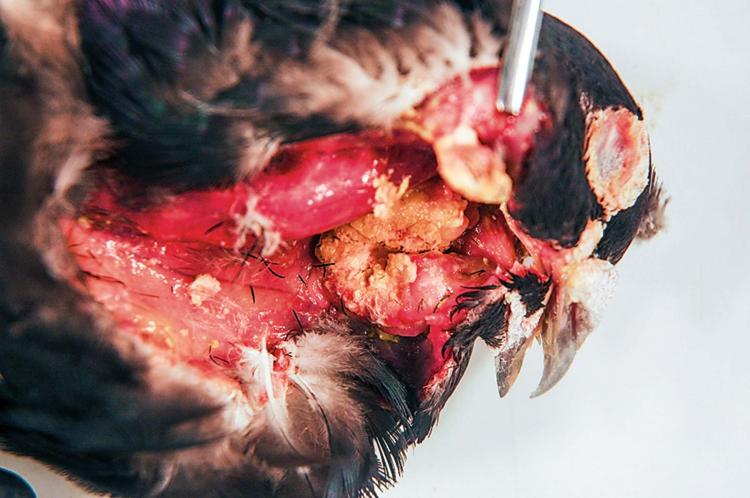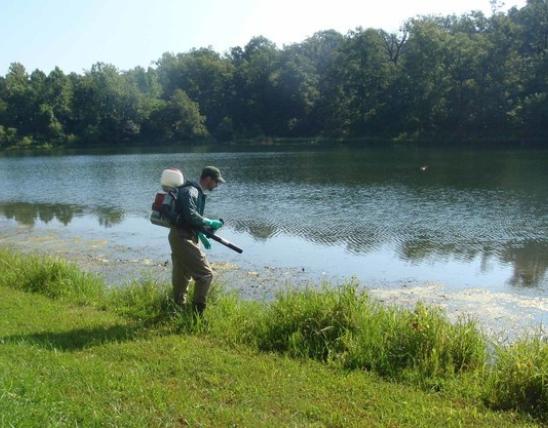Body
Commonly Infected Wildlife
Doves and pigeons.
Is This Animal Infected?
Pigeons and doves are commonly infected, but they may not show clinical signs.
If present, signs may include difficulty eating and breathing, emaciation, lethargy, and necrotic material in the mouth and esophagus.
Birds of prey (such as hawks and eagles) may become infected by consuming infected doves or pigeons.
Can I Get It?
No. There is no known risk to humans.
How bad can it get?
There is no known risk to humans.
Symptoms in humans
There is no known risk to humans.
Media
Image

Is user submitted
Caption
Trichomoniasis in a pigeon
Credit
Daniel Shaw, MU College of Veterinary Medicine
Body
Protect Myself and Others
- Some infections may be treated successfully by a licensed wildlife rehabilitator.
- If you suspect your local birds have this illness, stop artificial feeding for several days in order to help slow or stop the spread of the disease. Feeders can concentrate birds and hasten the spread of disease.
- As part of routine maintenance, clean and decontaminate bird feeders and baths weekly with a 10 percent bleach solution.
- Infected birds should be isolated or culled.
Safe for Pets?
While there is no known risk to pets, domestic caged birds, including turkeys and chickens, can become infected with this disease. Trichomoniasis can be treated with medication.
What Causes It?
A protozoan parasite called Trichomonas gallinae.





















